The 14th Annual CamTESOL Conference was held at the Institute of Technology Cambodia (ITC). The conference ran all day on Saturday 10 February and in the morning only of Sunday 11 February 2018. The theme of the conference was English Language Teaching in the Digital Era.
The conference was co-opened by H.E. Minister Hang Chuon Naron of the Ministry of Education, Youth and Sport (MoEYS), Ms Ruth Stewart, Deputy Head of Mission, Australian Embassy, Mr Michael A.Newbill, Deputy Chief of Mission, US Embassy, and deans of other universities. Registration for the conference was totalled 1,700, among whom 600 participants came from 39 countries specifically for the event. There was over 350 provincial teachers at the conference sponsored by various individual and institutional donors.
The CamTESOL-UECA Regional ELT Research Symposium was be held at the Cambodian Korean Cooperation Center (CKCC) all day on Friday 09 February. Notably, the Symposium attracted high quality researchers including PhD students, researchers and professors. More than 50% of the participants were residents in Southeast / East Asia, which made the Symposium truly regional.
In response to the rapid growth and popularity of the Annual CamTESOL Conference in the regional and globally, the Conference Secretariat launched the CamTESOL Mobile App. With the App in hands, it would be easy for the conference participants to access information about CamTESOL Conference, connect with their fellow ELT researchers and practitioners, and participate in the Virtual CamTESOL Community soon to be introduced. This considers a major revolution for CamTESOL Conference in fostering the ASEAN Integration and its Connectivity.
Additional activities included:
- Orientation Program for teachers from the provinces
- Presenters’ Warm Up Cocktail Reception
- Educational and Cultural Visits
- Cultural Dinner
The conference had a total of over 450 presentations across 29 streams from both the Research Symposium and Main Conference, including papers, workshops, and posters.
The conference plenary and featured speakers included:
Plenary Speaker
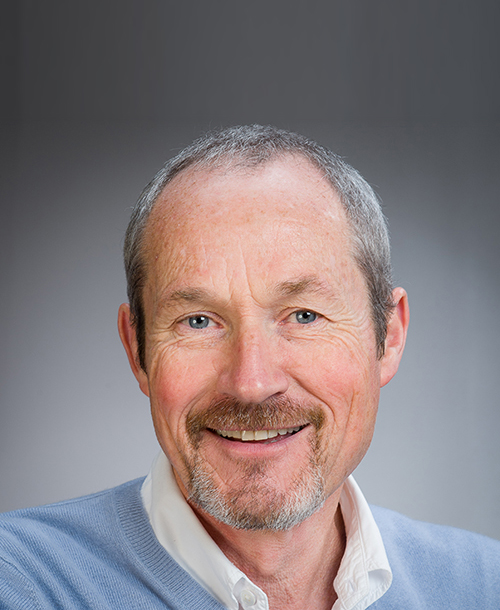
John Macalister
Professor in Applied Linguistics
Victoria University of Wellington, New Zealand
Sponsored by:

Main Conference Plenary Presentation
Are we really teaching reading?
Much of my work involves pre-service and in-service language teacher education, and collaborating with serving teachers on curriculum-related projects in second and foreign language settings, including in Cambodia. In this work a recurrent issue in the teaching of reading is a failure to relate the teaching of reading to reading as a meaning-making activity. This is an issue that is as relevant in the digital era as it was when pen and paper ruled, and all materials were in print form.
In this talk, I will consider what current research on L2 reading has actually succeeded in bringing to the classroom. In doing this, I will examine the three obvious candidates for inclusion in a reading programme: extensive reading, reading fluency development, and intensive reading. For each of these I will give my view on what’s getting through to teachers, and what’s not, and my best guess as to why it’s not. This leads to suggestions about actions that need to be taken in order to improve classroom practice. One action is to evaluate and improve the design of the curriculum.
Regional Research Symposium Featured Presentation
Fitting back in: The experience of language teachers after studying abroad
Mobility programmes allow students to travel to another country for all or part of their education. Such trans-national educational programmes have a range of claimed benefits – personal, professional, inter-cultural – and are often strongly supported; through its Erasmus+ programme, for example, the EU plans to have supported 4 million people for such educational experiences by 2020. This paper reports on the experiences of Malaysian English language teachers who studied for two years in New Zealand as part of their teacher education. It draws on data generated through observation of and interviews with four novice teachers, and seeks to understand the ways in which they sought to make sense of their professional learning in the classroom. This data forms part of a longitudinal project that investigates the evolving nature of their language teacher cognition, and in particular the contribution of the trans-national educational experience on their cognition and practice. The results confirm the overpowering influence of context, identify some points of conflict, and show the emergence of a small virtual community to support innovation and change.
MACALISTER John is Associate Dean (International) in the Faculty of Humanities & Social Sciences at Victoria University of Wellington, New Zealand. His most recent book is Family Language Policies in a Multilingual World (Routledge, 2017), co-edited with Seyed Hadi Mirvahedi.
Plenary Speaker
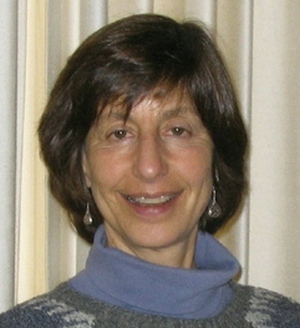
Fredricka L. Stoller
Professor of English at Northern Arizona University Flagstaff, Arizona, USA
Sponsored by:
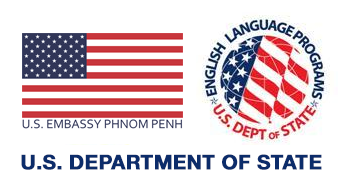
Plenary Speaker
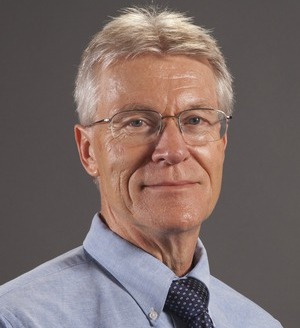
William Grabe
Professor of Applied Linguistics at Northern Arizona University Flagstaff, Arizona, USA
Sponsored by:

Regional Research Symposium Plenary Presentation
Action Research That Can Make a Difference in Our Classrooms
We can all be productive researchers. Every teacher has the ability to explore ways to teach more effectively and help students become better learners. Unlike more formal and larger scale research projects, action research provides practicing teachers with non-threatening means for systematically investigating their teaching and their students’ learning. The outcomes of action research can provide teachers with alternative ways of teaching that enhance the learning that occurs in their classrooms. The real appeal of action research—conducted individually or with colleagues—is that it permits us to examine our teaching in practical terms, at our own pace, and with our needs and our students’ needs in mind. In this interactive plenary, an easily adaptable multiple–step action research process is introduced, followed by an exploration of sample action research projects that will serve as models of the process for novice and experienced teachers.
Presentation handout is available to download here.
Main Conference Plenary Presentation
Where Is the D(Digital) in EFL Reading-to-Learn Contexts?
EFL readers are becoming more reliant on the Web for access to information for school, work, and their personal lives. In most school settings, being a strong reader—in print and on the Web—is now considered essential for academic success (Dobler & Eagleton, 2015). How are we preparing our students for this new reality? How can we prepare our students to be strong readers with both print and digital texts? In this plenary, we consider the ways in which digital reading can be addressed in our classrooms. We first consider reading-comprehension abilities that are critical for both print and digital reading. We then turn our attention to skills and strategies that are particularly relevant for Web-based reading, including the ability to (a) judge the relevance and reliability of Web sites in light of reading goals; (b) navigate back and forth among multiple texts; (c) decide how to handle the multimedia links encountered; and (d) self-regulate one’s reading to coordinate multiple processes, including navigation, selection, evaluation, comprehension, and monitoring. Participants will have hands-on experiences with digital-reading tasks that can be adapted for classroom use.
Presentation handout is available to download here.
Fredricka L. Stoller is Professor of English at Northern Arizona University, Flagstaff, Arizona, USA, where she teaches in the MA-TESL and Ph.D. in Applied Linguistics programs. In Spring 2018, she is teaching and conducting research as a Fulbright Scholar at the University of Foreign Language Studies, University of Da Nang, Vietnam. She is co-author of Teaching English to Second Language Learners in Academic Contexts: Reading, Writing, Listening, Speaking (with J. Newton et al., in press, Routledge); co-author of Teaching and Researching Reading (with W. Grabe, 2nd ed., 2011, Routledge); co-editor of A Handbook for Language Program Administrators (2nd ed., 2012, Alta English Publishers); and co-author of Write Like a Chemist (2008, Oxford University Press). She has published in English for Specific Purposes, English Teaching Forum, Journal of English for Academic Purposes, and Reading in a Foreign Language. Her professional areas of interest include L2 reading, content-based instruction, project-based learning, and disciplinary writing. She was a Fulbright scholar in Turkey (2002-03) and Timor Leste (2014), and has trained EFL teachers, teacher trainers, and language program administrators in 30 other countries.
William Grabe is Regents’ Professor of Applied Linguistics at Northern Arizona University, Flagstaff, Arizona, USA. He is interested in reading, writing, literacy, written discourse analysis, and content-based L2 instruction. He has lectured and given teaching-training workshops in over 30 countries around the world. His most recent books are Teaching English to Second Language Learners in Academic Contexts: Reading, Writing, Listening, Speaking (with J. Newton et al., Routledge, in press); Teaching and Researching Reading (with F. Stoller, 2nd ed., Routledge, 2011); and Reading in a Second Language: Moving from theory to practice (Cambridge University Press, 2009). He has also co-authored Theory and Practice of Writing (with R. B. Kaplan; Longman, 1996) and co-edited Directions in Applied Linguistics (Multilingual Matters, 2005). He served as Vice President for Research at NAU from 2012-2017. He is a past President of the American Association for Applied Linguistics (AAAL, 2001-2002). He received the 2005 Distinguished Scholarship and Service Award from AAAL.
Plenary Speaker
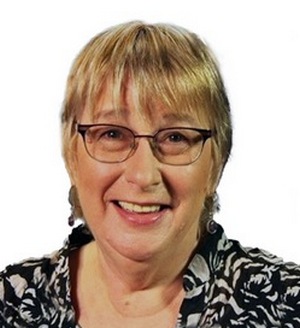
Dr Beverly Derewianka
Emeritus Professor at the University of Wollongong
Sponsored by:

Regional Research Symposium Plenary Presentation
Making a Difference through Research
Internationally there is increasing pressure for researchers to be accountable for the impact that their research is making. This goes beyond impact in terms of publication outputs. It means that researchers have to provide evidence to demonstrate how their research is having verifiable effects in terms of the economy, society, environment or culture beyond its contribution to the academic world. Researchers are now required to establish the significance of their work for end-users outside of academia. This presentation will consider the implications of this trend for TESOL researchers in an international context and how we might incorporate an impact factor into our research planning.
Main Conference Featured Presentation
Teaching Grammar in Context
While teaching grammatical structure with an emphasis on accuracy is quite reasonable, especially in an EFL context, contemporary approaches also encourage a ‘meaning-oriented’ view of grammar. In this workshop we will explore how to integrate grammar into the teaching of language across different genres and across different areas of the curriculum. Participants will engage in hands-on activities as they consider how grammar functions to make meaning in various academic contexts.
Dr Beverly Derewianka is an emeritus professor at the University of Wollongong. Beverly has worked as a teacher in primary, secondary and adult contexts and has been a teacher educator for over thirty years. She has played a key role in syllabus development both in Australia and internationally. She has worked in Hong Kong and Singapore and is regularly involved in research activities in South East Asia, Europe and USA. Her publications include School Discourse (with Frances Christie), A New Grammar Companion for Teachers, and Teaching Language in Context (with Pauline Jones). Although technically retired, she now enjoys spending most of her time working with teachers and learners in schools and observing the difference teachers make in the lives of their students.
Featured Speaker
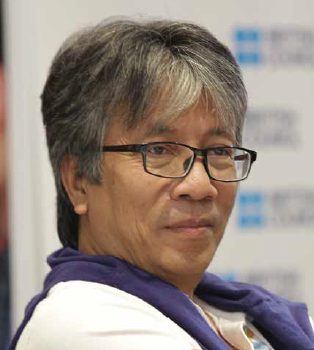
Jati Gumawang
TEFLIN Board member
Indonesia
Sponsored by:

Main Conference Featured Presentation
The Dynamic Changes of Pedagogy in ELT (English Language Teaching) and Beyond
The presence of internet and the rapid changes in technology have changed the process of educating students. Information and communication technologies (ICT) have impacted on ELT particularly on classroom practice, and on the types of materials available for teaching and learning (G Dudeney, N Hockly, 2012). This presentation is going to cover the influence of web 1.0 – 2.0 including Artificial Intelligence (A.I.) in ELT, highlight the changes in classroom activities and teaching practices for the four skills; listening, speaking, reading and writing. The second part of this presentation is going to elaborate the use of social media network both for teaching and informal teachers’ professional development. Facebook, twitter and LinkedIn have empowered teachers worldwide to join in a larger conversation with a global community of educators (Clare, A. and J. J. Wilson, 2011). The last part of this presentation is going discuss some useful Smartphone Apps for teaching and self-study followed by how to make the most of them. Although the potentials of Smartphones, tablets, and iPad have become indispensable to everyone because of their utility and usefulness in mobile language learning, this research area is still understudied.
Dr. GUMAWANG Jati, M.A is an English senior lecturer at Faculty of Arts and Design ITB. He finished his S1 degree from IKIP Sanata Dharma in 1987. He finished his M.A. degree from University of Warwick in 1989 specilizing in CALL. He obtained his doctorate degree from Indonesia Education University in 2010 specilizing in Education and ICT.
Featured Speaker
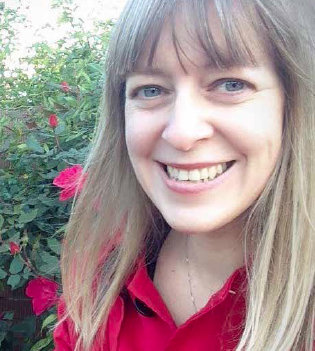
Louise Ohashi
Director of Program
Japan Association for Language Teaching (JALT)
Main Conference Featured Presentation
Build English Skills and Increase Motivation with Short Films
This presentation shows how short films that are freely available on the Internet can be used to help students work on the four base skills (speaking, listening, reading and writing), assist with receptive and productive vocabulary development, and boost motivation. A range of activities will be introduced, with audience members invited to actively participate in some of the demonstrations and discuss potential adaptations that can be done to foster learning in both classroom and out-of-class settings. The activities that will be introduced have been used by the presenter in university-level English classes in Japan. Feedback from students suggests that the use of film had a positive impact, with students perceiving a wide range of learning benefits. Furthermore, they reported feeling motivated when using the films in class, which prompted many of them to do self-selected tasks outside of class using films they had already seen or others that were recommended. This presentation introduces activities that can be adapted to suit a wide range of teaching contexts and proficiency levels, and is recommended for teachers of pre-intermediate to advanced learners.
A/Prof OHASHI Louise is the Director of Program of the Japan Association for Language Teaching (JALT). She is also an associate professor in the School of Global Japanese Studies at Meiji University, Japan. She has taught at the tertiary level in Japan since 2007 and prior to that worked within the private language school sector in Japan, England, Australia and Italy. She holds a Master of Education (TESOL) and is currently undertaking PhD at Charles Sturt University, Australia. Her main research interests are CALL/MALL and learner autonomy.
Featured Speaker
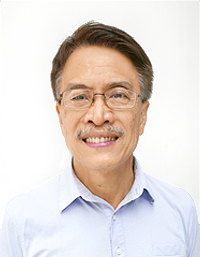
Benedict Lin
Lecturer
Nanyang Technological University, Singapore
Featured Speaker

Kingsley Bolton
Director
Language and communication centre, Nanyang Technological University, Singapore
Main Conference Featured Presentation
English as a Medium of Instruction in Cambodian Higher Education: a Language Use Survey
English as a medium of instruction (EMI) in higher education (HE), in contexts where English is not the L1 of the majority of the population, is a growing global phenomenon that has attracted extensive current research interest. However, there have been few studies of the actual educational realities of everyday EMI use. There are also very few studies of EMI in HE in developing societies, especially in Asia, Cambodia being one example. This paper presents the results of an innovative large scale questionnaire survey of EMI-related language use at the Royal University of Phnom Penh. The survey compares EMI use across different faculties and disciplines, and investigates how teachers and students use English, alongside or in place of Khmer, in oral and written communication for academic purposes. It also explores their perceptions and attitudes of EMI. Consequently, it will discuss the implications of its findings for programme planning, teacher training and policy making.
Dr LIN Benedict is a lecturer in the Language and Communication Centre, Nanyang Technological University, Singapore. He has published extensively in applied linguistics and TESOL, including articles in international journals and book chapters for major publishers. He has also taught at the SEAMEO RELC in Singapore, a Japanese university, and the University of Nottingham Ningbo China, and is a frequent visiting professor of the Institute of Foreign Languages, Royal University of Phnom Penh (RUPP). He is currently working on a major project on EMI in Cambodian HE, together with the co-presenter and Dr Sok Soth and Khan Bophan from RUPP.
BOLTON Kingsley is Director of the Language and Communication Centre, and full professor of Linguistics and Multilingual Studies at the Nanyang Technological University. He is Chief Editor of World Englishes, one of the highest ranked international journals in applied linguistics and English language studies. He is an internationally renowned expert on English around the world, and has published a number of well-known books in the field. One of his current research focus areas is English as a medium of instruction in different countries, for which he is involved in a number of ongoing projects.
Featured Speaker

Sovan Srun
Co-founder
Edemy
Featured Speaker
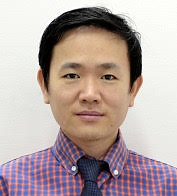
Kagnarith Chea
Co-founder
Edemy
Main Conference Featured Presentation
Tackling access to English education through an offline blended learning in a developing country?
The issues of undertrained teachers, uneven distribution of resources between rural and urban schools, and shortage of teachers are typical in developing countries. For example, Cambodia has an average ratio of 1:42 (40K, 2016). Only about 9% of the teachers earn a bachelor degree (MoEYS, 2015). So what innovation could be used to deal with such a chronic issue? This presentation showcases an English education initiative run by Edemy, a local social enterprise with a vision to equalize access to quality English learning. Edemy devises a new blended classroom model in which two classes are rotated between tablet-learning and face-to-face teacher session. Technology session focuses on building language accuracy while teacher sessions focuses on language fluency. Edemy’s model is designed to work even with undertrained teachers. This provides more efficient use of class times including more time for practices and personalized feedback to students. Best of all, students can learn like an online learning but without using the Internet. At the end of the session, participants can gain a new perspective of how to improve quality education in resource constraint environment.
Ms SRUN sovan is the Co-Founder and Operations Manager of Edemy a social enterprise working to equalize access to quality English learning for everyone everywhere. She holds an MBA in Social Entrepreneurship from Colorado State University, USA and a Bachelor of Education in TEFL at the Institute of Foreign Languages Royal University of Phnom Penh, Cambodia. She is passionate about helping underserved students access quality education and believe that technology could be the most effective tool to facilitate this process.
Mr CHEA kagnarith graduated with a Master in English in 2010 from Arizona State University. He is currently the co-founder of Edemy, which aims to provide English to all by taking down the barriers of affordability and resource constraints using a blended model of an offline learning platform combining with local teachers. He has been helping more than 600 students to have access to a quality affordable education by working with two universities, four high schools and various NGOs to help rural students better their English so that they can perform well at university, and apply for a better-paid job.
Featured Speaker

Brian Smith
Stakeholder Engagement Manager
IDP Education Ltd
Sponsored by:

Main Conference Featured Presentation
The use of IELTS as a benchmarking framework for professional accreditation and development
IELTS scores are recognised as valid and reliable indicators of English language proficiency by over 10,000 organisations globally. While the test has been, and continues to be, used widely for entry to academic courses of study, the use of test results extends beyond this function. Increasingly employers and professional regulatory agencies around the world are also using IELTS scores to benchmark language proficiency for their employees and members. Drawing upon global and regional examples, this presentation will examine some of the ways in which the IELTS scoring system is used as a professional accreditation and development framework, and what the benchmarks mean in practice. Particular focus will be placed on the use of IELTS as a framework for ongoing professional development for education providers and teachers.
Brian Smith joined IDP in August 2015. Brian’s work focuses on supporting Recognising Organisations in their use of IELTS as well as developing and maintaining relationships with key industry and policy stakeholders. Prior to joining IDP Education, Brian worked in the field of public health across south and southeast Asia and east Africa as a Senior Program Designer for funding bodies such as WHO, World Bank and the European Commission as well as the humanitarian and foreign aid programs of the governments of Australia, UK and USA.
| The CamTESOL Secretariat gratefully acknowledged the support of the following sponsors and exhibitors to the 14th Annual CamTESOL Conference on English Language Teaching: |
| Sponsors and Partners |
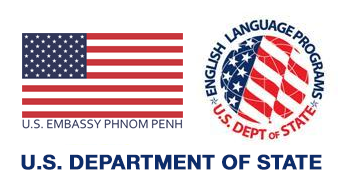 | ■ Sponsor of Main Conference Plenary Speakers (Prof. Fredricka L. Stoller and Prof. William Grabe) ■ Sponsor of CamTESOL-UECA Regional ELT Research Symposium Closing Plenary Speakers (Prof. Fredricka L. Stoller and Prof. William Grabe) ■ Gold Sponsor of Cambodian Provincial Teachers |
| | |
 | ■ Principal Sponsor ■ Sponsor on Marketing Materials for CamTESOL ■ Sponsor of Main Conference Plenary Speaker (Prof. John Macalister) ■ Sponsor of CamTESOL-UECA Regional ELT Research Symposium Featured Speaker (Prof. John Macalister) ■ Sponsor of Main Conference Featured Speaker (Dr. Jati Gumawang) ■ Sponsor of IELTS 6.5 Targeted Cambodian English Language Teaching Teacher and Teacher Trainee ■ Sponsor of CamTESOL ASEAN Collaborative Research Grant |
| | |
 | ■ Gold Sponsor of CamTESOL ASEAN Access Program ■ Sponsor of CamTESOL ASEAN Collaborative Research Grant ■ Silver Sponsor of Cambodian Provincial Teachers ■ Sponsor of CamTESOL General Research Grants |
| | |
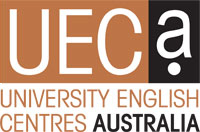 | ■ Principal Sponsor of CamTESOL-UECA Regional ELT Research Symposium ■ Sponsor of CamTESOL General Research Grants ■ Sponsor of CamTESOL-UECA Regional ELT Research Symposium’s Banners and Backdrop ■ Sponsor of Research Mentor |
| | |
 | ■ Sponsor of CamTESOL ASEAN Collaborative Research Grant ■ Sponsor of CamTESOL General Research Grant ■ Sponsor of CamTESOL ASEAN Access Program |
| | |
 | ■ Sponsor of CamTESOL-UECA Regional ELT Research Symposium Plenary Speaker (Dr. Beverly Derewianka) |
| | |
 | ■ Exclusive Transportation Partner |
| | |
 | ■ Official Telco Partner |
| | |
 | ■ Internet Services Partner |
| | |
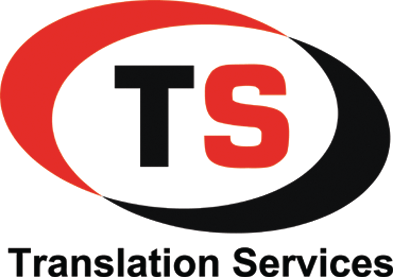 | ■ Translation Service Partner |
| | |
 | ■ Social Functions Venue Partner |
| | |
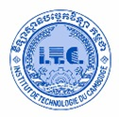 | ■ Main Conference Venue Partner (Institute of Technology of Cambodia) |
| | |
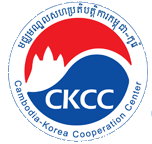 | ■ CamTESOL-UECA Regional ELT Research Symposium Venue Partner (Cambodia-Korea Cooperation Center) |
| | |
| Seamus J Fagan | ■ Bronze sponsor of Cambodian Provincial Teachers |
| | |
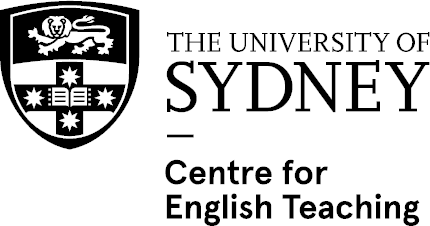 | ■ Bronze sponsor of Cambodian Provincial Teachers |
| Individual Sponsors of Cambodian Provincial Teachers |
■ Mr. Emanuel Frydland ■ Ms Cusen Oana ■ Ms. Maria Theresa Brewster ■ Mr. Samuel Bruce ■ Prof. Steven Gershon ■ Mr. Pham Van Toan ■ Mr. Harry Carley ■ Mr. David Richardson ■ A/Prof. Linda Fellag ■ Ms. Danielle Marie Fischer | ■ Mr. Ian Baecht ■ Dr Kelly King ■ Dr. Ranson Paul Lege ■ A/Prof. Arlene Caney ■ Mr. Mark Donnellan ■ Ms. Cara Phillips ■ Mr. Alexander Worth ■ Miss. Anna Loseva ■ A/Prof. Aviva Ueno ■ Mr. Paul Anthony Marshall | ■ Ms Sandra Pitronaci ■ Dr. Kelly King ■ Ms. Ronnie Hill ■ Ms. Iudzhiniia Sorokina ■ Mr. Ian Boyle ■ Mr. Alexander Nanni ■ Mr. Michael Griffin ■ Ms. Lauren Frances Scott ■ A/Prof. Wayne Malcolm |
For sponsorship and exhibitor opportunities at the 15th Annual CamTESOL Conference in 2019, please contact secretariat@camtesol.org. or visit the Adversiting and Sponsorship section in the CamTESOL website www.camtesol.org.